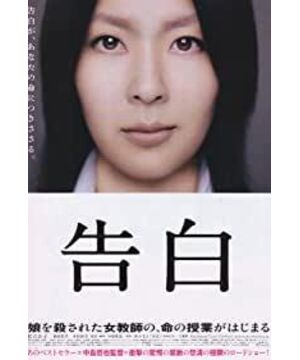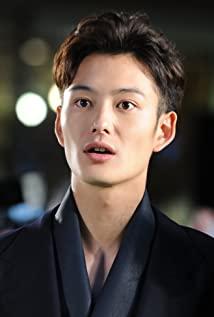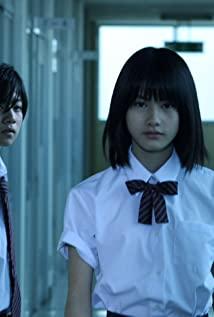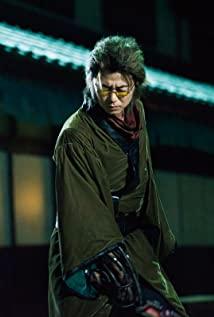The plot of the story is simply a story of a mother's revenge, but this seemingly simple story can be told a thousand times by the director, and the puzzles continue. This is the difference in the "game" setting of the film. The structure of the whole film is a stage-drama-style split-act form. Each scene has a core character, a core story, and a climax. Because of a drama-like structure, the whole film is more free and surreal in terms of performance style, like a stage play, and Japanese films themselves are also good at using such unrealistic performances and rituals The language and pictures express the theme. So, at the beginning, in the classroom, the students below are constantly fighting, the teacher's detached dictation, and the scenes of the students on the roof being bullied into one scene, which have set the tone for the style of the whole film. The suspense at the beginning creates a mysterious atmosphere, and at the same time, the identity of the murderer is revealed, which makes the whole film seem to have revealed the truth, and there is not much to say. But then, the film goes out of two branches, sometimes telling the causes of the characters of the two children, sometimes tracking their actions after the incident, and then maybe going back to the bits and pieces on the day of the incident, and this kind of playing with time clues In the palm-like scheduling, there are endless slow motions, hysterical roars, silent killings, and spectacular explosions. It can be said that the formalism style is extremely publicized, but it always pushes the story forward layer by layer. Lost in form, in this regard, Tetsu Nakajima also had a great performance in "The Disgusted Life of Matsuko", but although the formal expression at that time was gorgeous, it was not as publicized as "Confession".
And the important reason why Tetsuya Nakajima did not get lost in the form is that he always grasped the core of the story, and at the same time, with a constantly reversing narrative rhythm, the audience was firmly grasped and closely followed the plot. At the beginning of the film, the images of two ruthless, cowardly and cruel middle school students were quickly shaped, and the pity for a girl was also inspired by the hatred for the two. However, the film continues to reverse, leading the plot to more tangled and thought-provoking themes. There are too many variables in the cause of this tragedy, and there are too many sympathetic ways for the two children to put aside the tragedy as they grow up. They both planted the seeds of restlessness in their hearts because of the disability of their family, especially the child. "Genius Boy" even tried to attract the attention of the runaway mother with vigorous anti-social behavior. This retreat made the audience hesitate for a while because of their simple and straightforward hatred. It turns out that hateful people have pitiful feelings. At the same time, Tetsuya Nakajima also kept the story moving forward. The two children suffered heavy punishments, one became more autistic, the other became more distorted and crazy, but it was their mother's life and even more people's lives that got in. , and the sympathetic teacher at the beginning, the mother who lost her child, continued to advance the process of revenge calmly to the point of callousness. This advance made the audience hesitate for a while with the simple and straightforward revenge mentality. It turns out that poor people are also hateful. place. There is no joy in revenge, and this film, which is often filled with surrealistic illusions, brings more a sense of self-destruction with endless revenge for grievances. Your stance and emotions may be shaken as each scene unfolds, just like the fate of the characters in the film, strong and weak, pitiful and hateful, pathetic and shameful, death and survival, all in a frantic rhythm. It makes people feel sad, tragic, and sad.
The style of "Confession" is very Japanese, and it will inevitably cause polarized feelings in all audiences. Don't say that this story is abnormal, because the film presents a abnormal social disease. Violence hurts us coldly, but it may attract us deeply. The violent thought in my heart may eventually lead to the uncontrollable destructive power of a series of violence. Therefore, the teacher seems to be in control of the situation in the end, but in fact, he is addicted to revenge. Desperately, she has lost everything. Tetsuya Nakajima originally likes to paint his shots with rich and colorful colors, but in this film, the picture under the lens is always dark. This Tetsuya Nakajima, who is not the same as the past, also brings us more shocking power The social reality and shadow of human nature.
http://hi.baidu.com/doglovecat/blog/item/91578554a15bcb0a3b2935c6.html
View more about Confessions reviews











